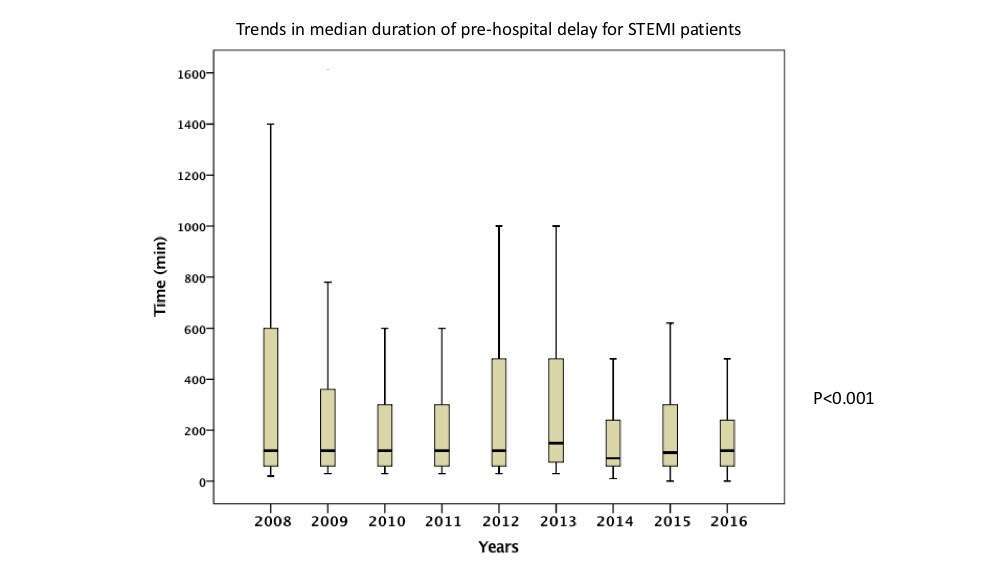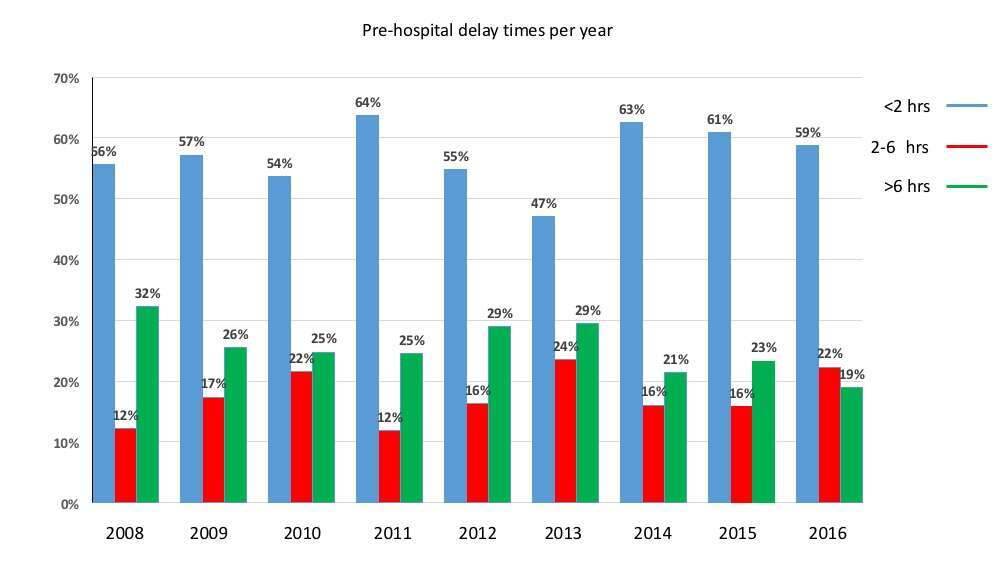
Trends and Predictors of Pre-Hospital Delay in Patients Undergoing Primary Coronary Intervention
Objective: Delay in seeking medical care following symptom onset in patients with acute ST elevation myocardial infarction (STEMI) is related to increased morbidity and mortality. Actual trends of pre-hospital delays in patients hospitalized with STEMI have not been well characterized. We evaluated trends in the length of time that had elapsed from symptom onset to hospital presentation among STEMI patients admitted to our hospital.
Methods: We retrospectively studied 2203 consecutive patients hospitalized for acute STEMI who underwent primary percutaneous coronary intervention (PCI) between January 2008 and December 2016. Information on the delay in time from symptom onset to presentation at hospital was extracted from the patients’ medical records.
Results Over the 9-year study period, the median duration of pre-hospital delay for patients undergoing primary PCI demonstrated significant variation being maximal between the years 2013 and 2014 (150 minutes vs. 90 minutes respectively, P<0.001). A significant increase was demonstrated in the proportion of patients with pre-hospital delay6 hours, being maximal between 2008 and 2015 (32% vs. 23%, p=0.001). Multivariate logistic regression model revealed that advanced age, diabetes, female gender and first STEMI were independently associated with pre-hospital delay >2 hours.
Conclusions: Pre-hospital delay periods for patients undergoing primary PCI demonstrated variations over time. Greater efforts are needed to educate at-risk populations about seeking early medical assistance.



Powered by Eventact EMS